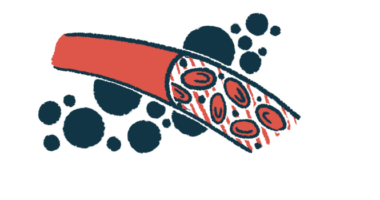Alivegen’s ALG-801 named FDA orphan drug for PAH
Developer now planning Phase 2 trial to test therapy candidate

The U.S. Food and Drug Administration (FDA) has granted orphan drug designation to ALG-801, Alivegen’s experimental treatment for pulmonary arterial hypertension (PAH).
That designation aims to support the development of therapies for rare diseases, or those affecting fewer than 200,000 people in the U.S. It comes with certain incentives, including tax credits, exemption from certain fees, support during drug development, and seven years of market exclusivity if the treatment is ultimately approved.
“FDA’s orphan drug designation for ALG-801 underscores the need for identifying better treatment options for patients suffering from PAH,” HQ Han, MD, PhD, Alivegen’s CEO, said in a company press release. “The designation represents another milestone in Alivegen’s efforts to discover and develop first-in-class/best-in-class therapeutics for high unmet medical needs.”
ALG-801 found safe, well tolerated in Phase 1 study, per developer
PAH is caused by the narrowing of the pulmonary arteries — the blood vessels that carry blood through the lungs — which restricts blood flow and causes high blood pressure, or hypertension. It also makes the heart work harder to pump blood through the body, which can lead to right heart failure in advanced disease stages.
ALG-801 is a next-generation ligand trap targeting type IIA/IIB activin receptors that selectively sequesters a specific set of molecules that activate the Smad2/3 pathway, known to be involved in PAH. Smad2/3 is implicated in the growth of pulmonary artery smooth muscle cells, which contributes to blood vessel remodeling, essentially structural alterations, and narrowing of pulmonary arteries.
We believe that ALG-801, which has demonstrated superior efficacy and improved safety profile in preclinical and clinical Phase 1 studies, holds a remarkable potential to become a best-in-class medicine for PAH.
According to the company, the therapy was found to be safe and well tolerated in a Phase 1b trial conducted in healthy volunteers. Treatment with ALG-081 also selectively inhibited several molecules involved in Smad2/3 pathway activation.
In addition, it led to dose-dependent and statistically significant effects, including muscle gain, fat loss, improved regulation of blood sugar levels, and reduced bone loss, the company said.
According to Alivegen, those findings illustrate the therapy’s potential for patients with muscle wasting, obesity, cardiometabolic disorders, neuromuscular diseases, chronic kidney disease, and other disorders.
“We believe that ALG-801, which has demonstrated superior efficacy and improved safety profile in preclinical and clinical Phase 1 studies, holds a remarkable potential to become a best-in-class medicine for PAH,” Han said.
The company stated in the release that it is now planning to test ALG-801 in a Phase 2 clinical trial, though no timeline nor other details were provided.








